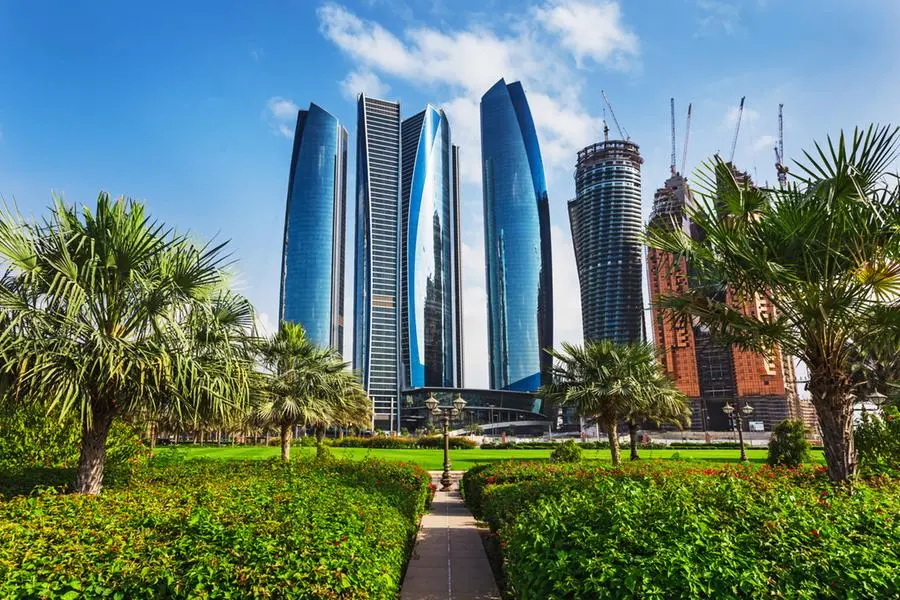PHOTO
The UAE's Minister of Climate Change and the Environment, Dr. Amna bint Abdullah Al Dahak Al Shamsi, emphasised that sustainability is deeply ingrained in the UAE's national identity, and this commitment originates from the vision and legacy of the UAE's Founding Father, the late Sheikh Zayed bin Sultan Al Nahyan, and continues to guide the current leadership in environmental stewardship and addressing climate change.
This statement came during a session in which Dr. Al Dahak addressed participants of the 2nd Global Government Leaders Programme (GGLP), organised as part of a series of field visits that take them around various government entities and national projects to learn about the UAE’s best practices and success in various strategic sectors.
Dr. Al Dahak stated, “Sustainability is part of the UAE DNA, and a legacy that continues to guide our path with clear vision and objectives. We consider sustainability a core value that not only shapes domestic policies but also positions the UAE as a global leader.”
She noted that the Ministry of Climate Change and Environment actively translates this vision into action through collaborative partnerships with diverse stakeholders, including government entities at all levels, NGOs, private sector actors and the wider community. This collaborative approach ensures a comprehensive and integrated strategy for addressing climate change and protecting precious resources, among other current challenges.
The UAE is pursuing ambitious goals in the realm of sustainable development, Dr. Al Dahak noted, particularly through its Energy Strategy 2050, which aims to triple the share of renewable energy in the UAE’s energy mix, among other strategic aims.
“This strategy reflects a long-term commitment to diversifying energy sources and reducing reliance on fossil fuels, in addition to strengthening the circular economy model which aims to create a more sustainable and resilient economic system by minimising waste, maximising resource efficiency and promoting innovative solutions for waste treatment and recycling,” she added, noting that the Ministry of Climate Change and the Environment plays a pivotal role in supporting these efforts through environmental regulations and promoting green practices.
Dr. Amna Al Dahak highlighted initiatives promoting environmentally friendly practices, including Plant the UAE, the national programme launched by His Highness Sheikh Mohammed bin Rashid Al Maktoum, Vice President, Prime Minister and Ruler of Dubai. This programme supports the UAE's plans for agricultural development and sustainable national food security.
“The programme encourages growing key crops at home, supports environmental conservation and seeks to shift the public mindset regarding high-quality local produce. It also contributes to the Year of Sustainability 2024 and lowers the carbon footprint by promoting local, fresh produce,” she said.
The programme is a great example of public-private partnerships aimed at expanding green spaces and promoting local agriculture, as the Ministry of Climate Change and the Environment continues to push for climate-smart agriculture, empowering communities to contribute to a more sustainable UAE.
Concluding the session, Dr. Al Dahak reiterated the UAE's commitment to international cooperation and sharing expertise to achieve global sustainable development goals. She expressed hope that the GGLP would provide a valuable platform for participants to share insights and benefit from the UAE's experience.
The Global Government Leaders Programme, jointly organised by the Government Experience Exchange Office at the Ministry of Cabinet Affairs and the Mohammed bin Rashid Centre for Leadership Development (MBRCLD) operating under the Executive Office of His Highness Sheikh Mohammed bin Rashid Al Maktoum, empowers the first- and second-tier government leaders from participating countries. By sharing the UAE's successful experience in government performance, the programme equips participants with practical tools and models to enhance their institutions' future readiness and effectiveness.
Participants in the 2nd cohort of the Global Government Leaders Programme come from 31 countries, namely: Azerbaijan, Mongolia, the Kurdistan Region, Iraq, Bermuda, Ethiopia, Georgia, the Maldives, Andorra, Kyrgyzstan, Egypt, Barbados, Romania, Costa Rica, Madagascar, the Seychelles, Kazakhstan, Uzbekistan, Fiji, Rwanda, Senegal, Colombia, Paraguay, Brazil, Turkmenistan, Guyana, Brunei, Malta, Zimbabwe, Serbia and the UAE.





















